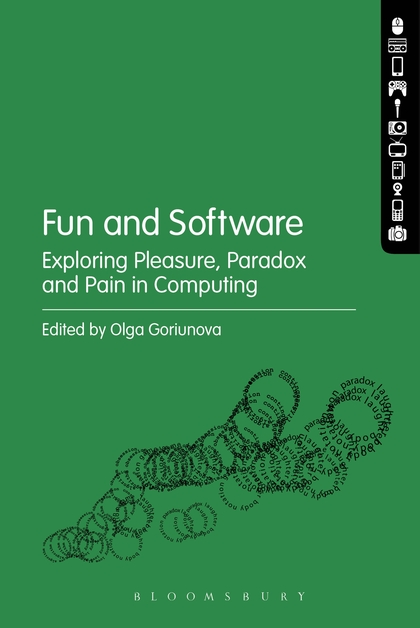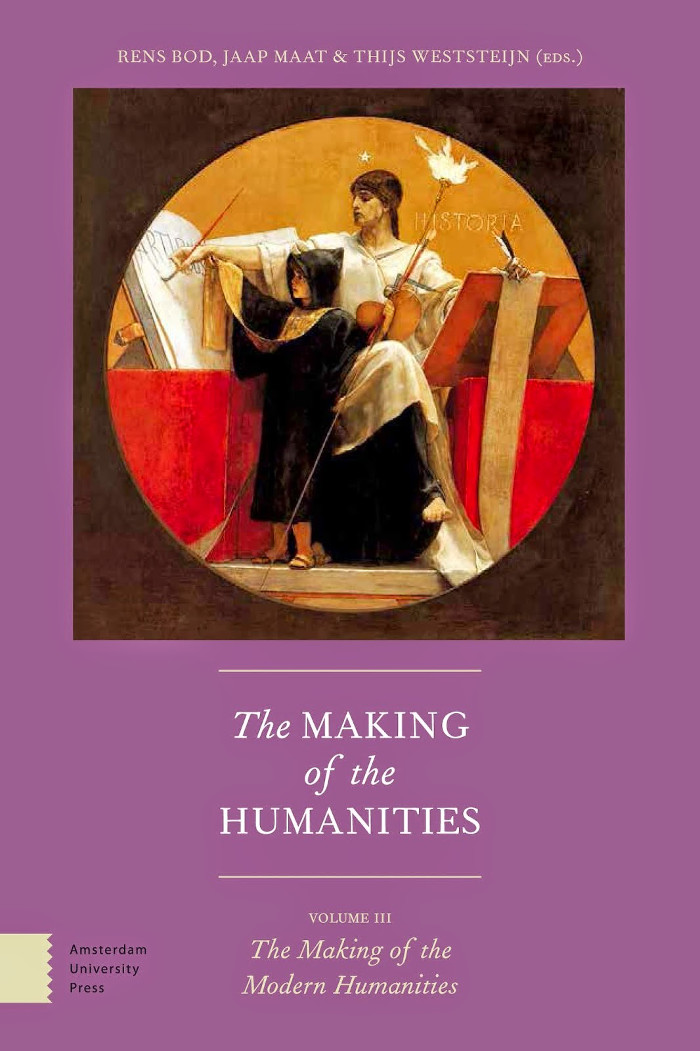Olga Goriunova (ed.): Fun and Software: Exploring Pleasure, Paradox and Pain in Computing (2014)
Filed under book | Tags: · abstraction, aesthetics, affect, algorithm, art, body, code, computing, game, humour, labour, logic, media, media theory, politics, programming, software, software art, software studies, theory, time

“Fun and Software offers the untold story of fun as constitutive of the culture and aesthetics of computing. Fun in computing is a mode of thinking, making and experiencing. It invokes and convolutes the question of rationalism and logical reason, addresses the sensibilities and experience of computation and attests to its creative drives. By exploring topics as diverse as the pleasure and pain of the programmer, geek wit, affects of play and coding as a bodily pursuit of the unique in recursive structures, Fun and Software helps construct a different point of entry to the understanding of software as culture. Fun is a form of production that touches on the foundations of formal logic and precise notation as well as rhetoric, exhibiting connections between computing and paradox, politics and aesthetics. From the formation of the discipline of programming as an outgrowth of pure mathematics to its manifestation in contemporary and contradictory forms such as gaming, data analysis and art, fun is a powerful force that continues to shape our life with software as it becomes the key mechanism of contemporary society.”
Texts by Andrew Goffey, Simon Yuill, Matthew Fuller, Luciana Parisi and M. Beatrice Fazi, Adrian Mackenzie, Michael Murtaugh, Geoff Cox and Alex McLean, Wendy Hui Kyong Chun and Andrew Lison, Christian Ulrik Andersen, Brigitte Kaltenbacher, Annet Dekker, and Olga Goriunova.
Publisher Bloomsbury, New York and London, 2014
New Media and Technology series
ISBN 1623560942, 9781623560942
285 pages
Software studies page on Monoskop
Comment (0)Rens Bod, Jaap Maat, Thijs Weststeijn (eds.): The Making of the Humanities, Vol. 3: The Modern Humanities (2014)
Filed under book | Tags: · aesthetics, archaeology, art history, classics, digital humanities, history, history of science, humanities, knowledge, language, linguistics, literary theory, literature, musicology, philology, philosophy, science, social science, theatre

“This comprehensive history of the humanities focuses on the modern period (1850-2000). The contributors, including Floris Cohen, Lorraine Daston and Ingrid Rowland, survey the rise of the humanities in interaction with the natural and social sciences, offering new perspectives on the interaction between disciplines in Europe and Asia and new insights generated by digital humanities.”
Publisher Amsterdam University Press, Amsterdam, 2014
Creative Commons BY-NC 3.0 License
ISBN 9789089645166
724 pages
PDF, PDF (6 MB, updated on 2022-12-20)
Volumes 1-2
Roberto González Echevarría: Myth and Archive: A Theory of Latin American Narrative (1990–) [EN, ES]
Filed under book | Tags: · anthropology, archive, christianity, city, history, history of literature, latin america, law, literary theory, literature, myth, narrative, rhetoric, violence, writing

“This book offers a theory about the origin and evolution of the Latin American narrative, and about the emergence of the modern novel. It argues that the novel developed from the discourse of the law in the Spanish Empire during the sixteenth century, while many of the early historical documents concerning the New World assumed the same forms, furnished by the notarial arts. Thus, both the novel and these first Latin American narratives imitated the language of authority. The book explores how the same process is repeated in two key moments in the history of the Latin American narrative. In the nineteenth century, the model was the discourse of scientific travellers such as von Humboldt and Darwin, while in the twentieth century, the discourse of anthropology – the study of language and myth – has come to shape the narrative. Professor González Echevarría’s theoretical approach is drawn from a reading of Carpentier’s Los pasos perdidos, and the book centres on major figures in the tradition such as Columbus, Garcilaso el Inca, Sarmiento, Gallegos, Borges and Garcia Marquez.”
Publisher Cambridge University Press, 1990
ISBN 0521023998, 9780521023993
245 pages
Review (Terry J. Peavler, Latin American Research Review, c1990, EN)
Review (Margarita Zamora, Hispanic Review, 1992, EN)
Review (Adriana Gordillo, Fronteras de la historia, 2003, ES)
Publisher (EN)
WorldCat (EN)
WorldCat (ES)
Myth and Archive (PDF), PDF (English, 1990)
Mito y archivo: una teoría de la narrativa latinoamericana (Spanish, trans. Virginia Aguirre Muñoz, PDF, 77 MB, via Academia.edu)

